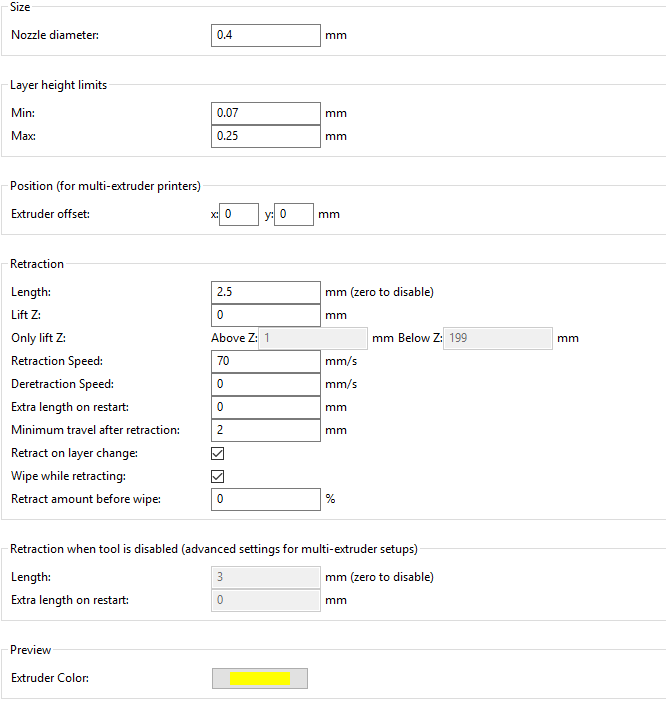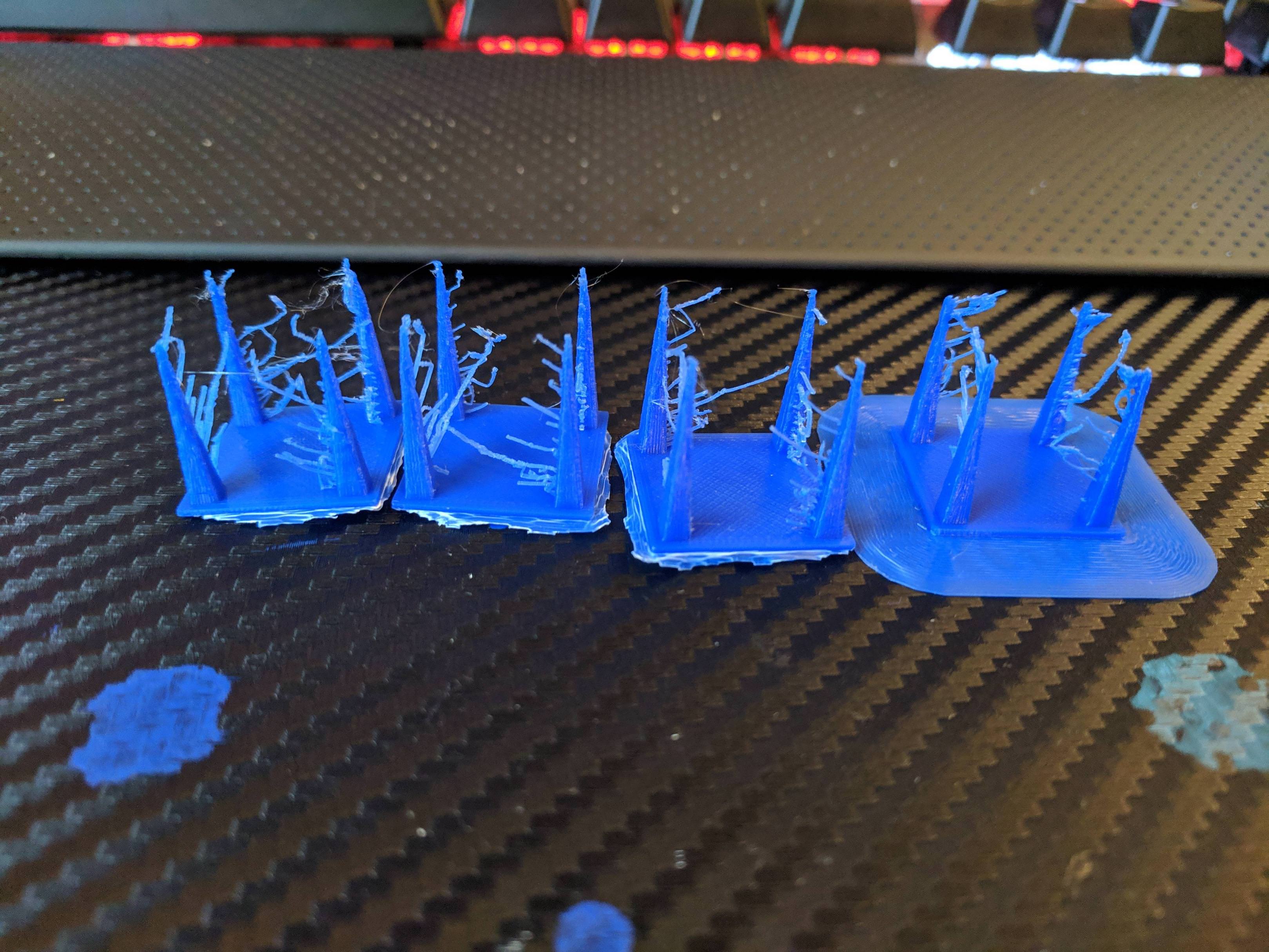Stringing Issues
I'm trying to do a print at a 0.05mm layer height.
It failed due to massive stringing between the supports generated by Sli3er PE. I started to work on my retraction settings and after 10 test prints, i was still getting terrible stringing.
Retraction settings:
The next thing which gave me some positive change was printing at a cooler temperature. I printed test prints from 215C -> 190C (in increments of -5C).
From left to right (210C-190C) in increments of -5C:
My question is what else could i do to improve my print quality and reduce the stringing?
Re: Stringing Issues
Do you get the same stringing at 0.10mm layer heights?
and miscellaneous other tech projects
He is intelligent, but not experienced. His pattern indicates two dimensional thinking. -- Spock in Star Trek: The Wrath of Khan Unfortunately,…
Re: Stringing Issues
I didnt test the 0.10mm layer height. If that prints better, what could be the issue with 0.05mm printing?
Re: Stringing Issues
The guy from Tomb of 3D Printing Horrors has a good video on YouTube that covers this topic near the start. In short: Thinner layers are a lot more likely to sag & string due to the repeated proximity to the nozzle as thinner layers are printed, and repeated heating of material. The material extruded with thinner layers stays hot a lot longer, and can thus string independent of your retraction and other settings. He also touches on the danger of using 100% infill and other related problems with small detailed prints.
I didnt test the 0.10mm layer height. If that prints better, what could be the issue with 0.05mm printing?
Tuning your extrusion multiplier for each specific filament might help reduce over-extrusion which can contribute. Prusa's got a good page on calibrating your multiplier. I'm fighting a battle with ultra-fine wispy strings, not the thick stuff you're fighting, so I'm gathering up as much info as I can find. Can't say I've got a 100% answer, but my problems are greatly reduced.
and miscellaneous other tech projects
He is intelligent, but not experienced. His pattern indicates two dimensional thinking. -- Spock in Star Trek: The Wrath of Khan Unfortunately,…

